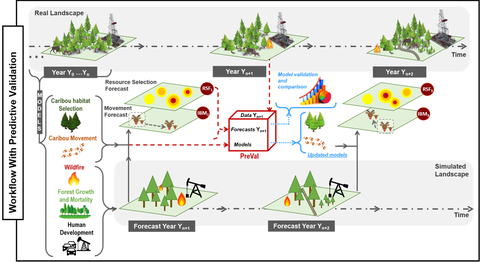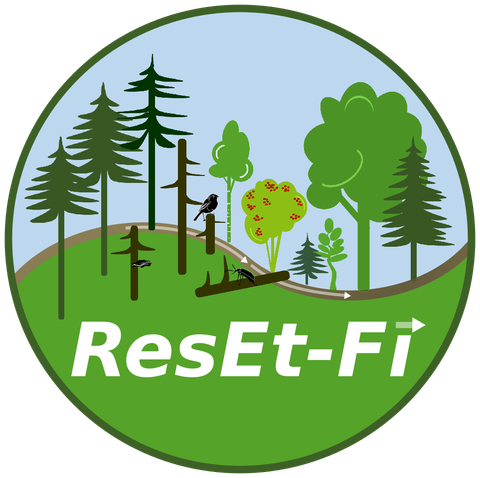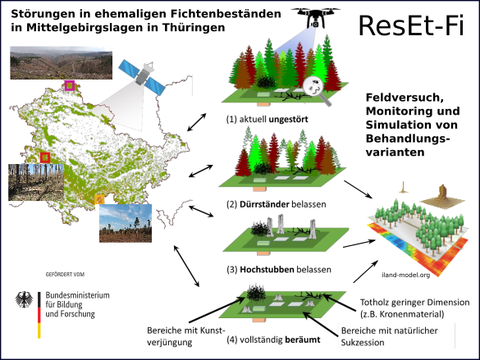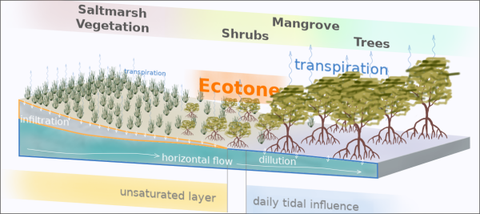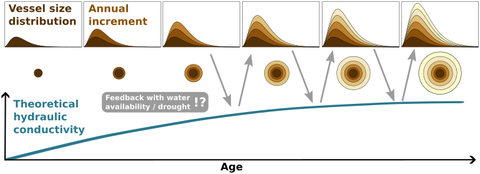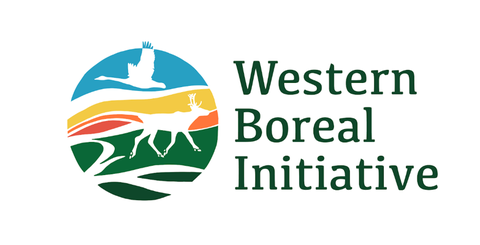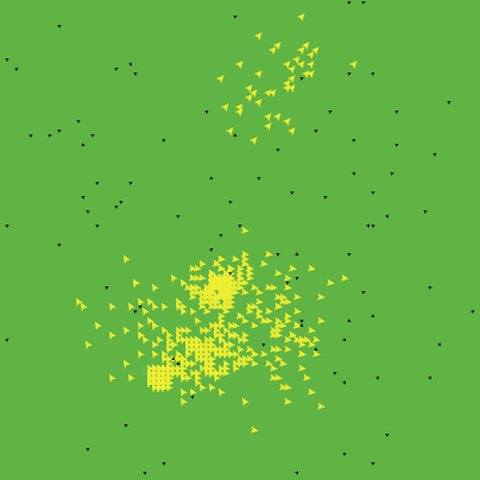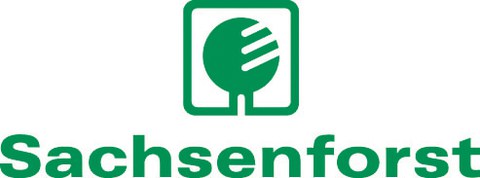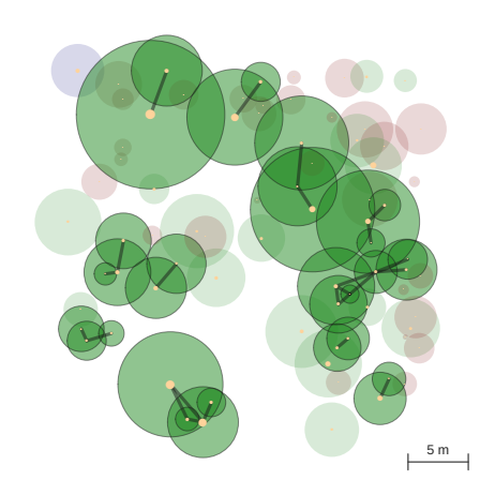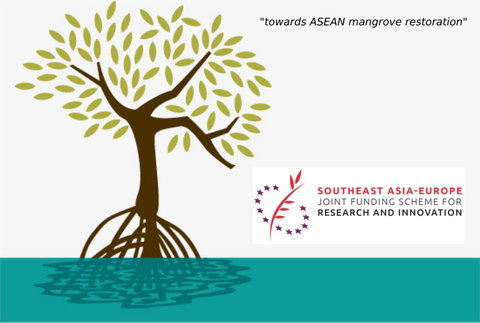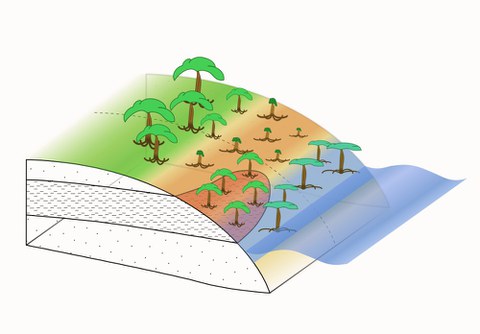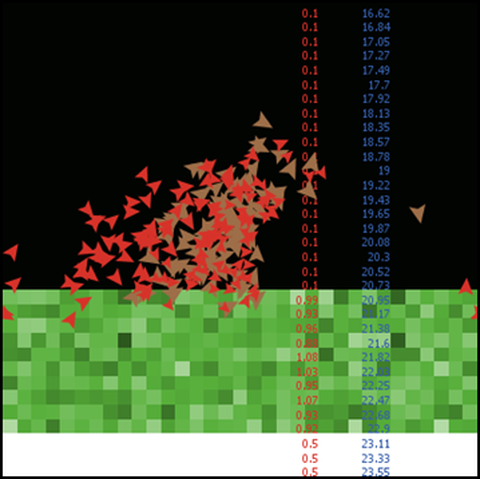Research Projects
Our chair executes a variety of research projects. Topics, contact persons and funding agencies are listed below. Additional information (mostly in German) is provided by the Research Information System (FIS) of the TU Dresden.
Index
current projects | completed projects
___________________________________
Current Projects
_____________________________
XyLife
Individual-based modelling of xylem life history to advance projections of tree responses to climate change.
The project aims at integrating life history-specific patterns of xylem formation into individual-tree models in order to advance our understanding of the drivers, magnitude and consequences of intra-specific variation in hydraulic traits of trees of different origin, and how this possibly affects forest composition and functioning in the long term, i.e. under climate change.
- 2025 - 2028
- Funded by the Deutsche Forschungsgemeinschaft (DFG, German Research Foundation) – 549123622
- Contact: Martin Zwanzig (PI), in cooperation with Ernst van der Maaten and Marieke van der Maaten-Theunissen (Prof. of Forest Growth and Woody Biomass Production)
- Project details (GEPRIS)
- Project introduction (news article)
________________________________________________________________
SIMPLY-REJUVE
Development and application of an innovative method for the reconstruction of spatial point patterns on the basis of small reference areas to evaluate the natural regeneration potential in forest stands. The aim is to simplify the time-consuming and cost-intensive collection of regeneration data and to support well-founded silvicultural decisions through simulation-based methods.
- 2025
- Founded by: DFG (German Research Foundation)
- Contact: Chris Wudel
________________________________________________________________
Prediction validation and iterative model optimization: a tool for improving long-term landscape management
This project aims to improve long-term ecological forecasts by developing a generic, model-agnostic predictive validation tool integrated within an iterative forecasting framework (PreVal). Traditional ecological models often struggle with accuracy due to their complexity and the lack of transdisciplinary expertise. The proposed tool will allow frequent updates with new data, enhancing the reliability of predictions and aiding in effective landscape management. By leveraging the [PERFICT principles](https://onlinelibrary.wiley.com/doi/10.1111/ele.13994), which emphasize frequent predictions, evaluations, and the reusability of models, the project aims to bridge the gap between ecological forecasting and practical landscape management. The [SpaDES toolkit](https://predictiveecology.org/training/_book/) is highlighted as a key component to implement this framework, providing the necessary tools for model connection, reconfiguration, and iterative forecasting. This approach is expected to significantly advance the field of predictive ecology, supporting the creation of an open-source “digital twin” for ecosystems and improving the sustainability of landscape management practices. This project is being supported by the DFG [(Project No. 529743012)](https://gepris.dfg.de/gepris/projekt/529743012).
- Since 2024
- Funded by DFG (German Research Foundation)
- PI / Contact: Tati Micheletti
________________________________________________________________
REGULUS-Verbundvorhaben: ResEt-Fi - Wegbereiter Wiederbewaldung: Regionales Flächenmanagement zur Entwicklung multifunktionaler Wälder auf gestörten Fichtenflächen
Based on the large-scale disturbances and forestry damages in former spruce stands in low mountain ranges, feasible solution concepts, and tools for risk assessment and decision-making in the reforestation of disturbed areas will be developed. In field trials in 3 regions in Thuringia, different treatment variants are tested and their effects on soil, water, flora, fauna, and fungi are investigated by intensive monitoring of in total of 8 working groups. The objective of the subproject "Modeling" is to simulate the reforestation dynamics with the individual-based forest landscape and disturbance model ‚iLand‘ and thus to map and analyze the effects of disturbance area management more precisely. A more detailed description is provided in the news article on the project.
- 2023 - 2026 (Phase I; Phase II: - 2028)
- Funded by BMBF (033L304F)
- Contact: Xinying Zhou (PhD student), Martin Zwanzig (PI)
- Project coordination: Forstliches Forschungs- und Kompetenzzentrum in Gotha von ThüringenForst (AöR)
Project website
REGULUS program
________________________________________________________________
MASCOT - Mangrove-Saltmarsh ecotone patterns as indicators for critical impacts of sea level rise and climate change on coastal wetlands
Tropical and subtropical coastal wetlands typically consist of two main habitat types, namely mangroves and saltmarshes. The transition between both habitat types is referred to as “mangrove-saltmarsh ecotone”. The landward transition from a mangrove to a saltmarsh habitat is a clear indicator of different abiotic conditions found along their gradient and their differing impact on mangrove and saltmarsh vegetation. At the same time, individual plants themselves are constantly altering their local abiotic and biotic environment, e.g. by taking up water and thus increasing soil salinity, but also by facilitating the establishment of plants of other species. As a result of these feedbacks between plants and their environment, observable vegetation patterns, such as the spatial distribution of species, their height or their spacing, emerge within the ecotone.
With this project, we intend to reach a general understanding of the underlying mechanisms resulting in ecotone patterns and their shifts. We will develop and use a mechanistic simulation model (on the basis of the MANGA model, as developped in the preceding MARZIPAN project) that will describe the fully coupled interactions between saltmarsh plants, mangrove shrubs and trees, and soil water, as we assume that the dominance of either woody mangrove vegetation or herbaceous saltmarsh vegetation relies mainly on the interplay of subsurface flow processes, tidal flooding, precipitation regime and vegetation-soil-feedback mechanisms.
- Since 2022
- Funded by the German Research Foundation DFG
- Contact person: Ronny Peters
- In cooperation with Prof. Britta Tietjen and Jonas Vollhüter (FU Berlin)
_________________________
Completed Projects
_____________________________
SIMONA-REX
Development and analysis of spatially-explicit simulation models to quantify the natural regeneration potential of oak in pine-dominated areas at landscape and stand level. Support of forest management concepts through a simulation-based investigation of the effects of forest treatment scenarios for different baseline conditions.
- Since 2021
- Funded by Waldklimafonds
- Contact person: Chris Wudel (in cooperation with Franka Huth, Chair of Silviculture, TU Dresden, and Forst Brandenburg)
- Further information (in German)
________________________________________________________________
Student research project on simulating the plasticity of hydraulic conductivity of trees
Hydraulic conductivity is an important component of the hydraulic system of trees and is itself also influenced by environmental conditions. To investigate this interplay in more detail, an existing single tree model ('BETTINA') will be adapted. There, hydraulic conductivity will no longer be considered as rigid, but as a dynamic state changing with environmental conditions and the growth of the single tree. The aim is to gain a better understanding of the ontogeny and adaptation strategies of trees to water-limited conditions. A more detailed description is provided in the news article on the project.
05/2023 - 03/2024
Funding for Jennifer Christ, WHK at the chair, within the FOSTER program of the TU Dresden
Supervision: Martin Zwanzig
FOSTER is funded by the Federal Ministry of Education and Research (BMBF) and the Freestate of Saxony under the Excellence Strategy of the Federal Government and the Länder.
________________________________________________________________
WBI - WESTERN BOREAL INITIATIVE
The WBI focuses on modeling cumulative effects (CE) by measuring and forecasting current and future consequences of multiple stressors such as wildfires, pests, forestry and other anthropogenic disturbances as well as climate change on the ecosystem services supplied by Canada’s forests. Under a collaboration with TU Dresden, we will develop agent-based models for anthropogenic disturbances such as mineral and energy exploration in a smaller section of the study area, the Northwest Territories. These new models will help better forecast caribou habitat suitability and population growth to inform long-term range planning.
- Since 2019 (in the Northwest Territories) and 2020 in the Western Boreal
- Funded by ECCC and NRCan
- Contact person: Tati Micheletti (in cooperation with Eliot McIntire, NRCan and Samuel Haché, CWS/ECCC)
- Project website; WBI forecasts
________________________________________________________________
VERMOS
The Project aims to develop a guide for forest owners in the Northeast German lowlands, dominated by Scots pine (Pinus sylvestris (L.)), to regulate mixed forest regeneration under different climate conditions while considering the silvicultural and operative framework.
- 2019 - 2022
- Funded by Waldklimafonds
- Contact person: Janosch Heinermann (in cooperation with Franka Huth, Chair of Silviculture, TU Dresden, and Forst Brandenburg)
________________________________________________________________
PEKRIS II - THE PERFORMANCE OF KRILL VS. SALPS TO WITHSTAND IN A WARMING SOUTHERN OCEAN II
- 2019 - 2022
- Funded by Bundesministerium für Bildung und Forschung - BMBF
- Contact person: Bruno W. Pietzsch
________________________________________________________________
COMBINING INDIVIDUAL-BASED MODELS AND ADVECTION MODELS TO ASSESS CLIMATE CHANGE IMPACT ON ANTARCTIC KRILL
- 2019-2022
- Funded by German Research Foundation (DFG)
- Contact person: Dominik Bahlburg (in cooperation with Dr. Jürgen Groeneveld and Prof. Bettina Meyer from Uni Oldenburg and Alfred-Wegener- Institute Bremerhaven)
________________________________________________________________
DiMo
Development of a digital solution for import, storage, evaluation and presentation of the data of the Saxon bark beetle monitoring system, in particular of the focal species Ips typographus and Pityogenes chalcographus.
- 11/2021 - 3/2022
- 09-11/2022 (follow-up project)
- Research service for Sachsenforst
- Contact person: Martin Zwanzig
________________________________________________________________
KROPOTKIN'S GARDEN: NETWORKING BEATS COMPETITION IN THE STRUGGLE FOR LIMITED RESOURCES
Natural root grafting could play a pivotal role in resource sharing among tree networks since it can be interpreted as collaborative behaviour as known for superorganisms. It will be surveyed systematically under which conditions resource sharing via grafting will be beneficial for trees instead of exploiting a limited resource alone.
- 2018 - 2021
- Funded by VolkswagenStiftung (Project description, Press release)
- Contact person: Marie Wimmler (i.a. in cooperation with Alejandra Vovides, University of Glasgow)
- Project website: https://mangroverootnetworks.info/
- Kick-off meeting
________________________________________________________________
RESCUE - MONITORING AND RESTORATION FOR SUSTAINABLE COASTAL ECOSYSTEMS
The projects aims to monitor and optimize the design quality of mangrove restoration towards a sustainable coastal ecosystem management in Thailand and Mekong delta of Vietnam. It brings together 6 participants from the public sector in 3 different European countries (France, Germany, Italy) and 2 South East Asian countries (Thailand and Vietnam).
- 2018 - 2019
- Funded by SOUTHEAST ASIA-EUROPE JOINT FUNDING SCHEME FOR RESEARCH AND INNOVATION
- Contact person: Uta Berger
- More information (p. 6)
________________________________________________________________
PEAT-FIRE OCCURRENCE AND BIODIVERSITY CONSERVATION
The project aims to understand the patterns of above- and below-ground fire occurrences in the tropical peatland ecosystem and how household behaviour and human decisions affect land use patterns and its susceptibility to fire.
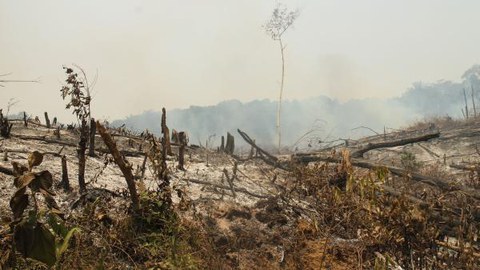
Peat fire in Indonesia. The fires are below the surface where the peat smoulders.
- 2017 - 2020
- Funded by Ministry of Research, Technology and Higher Education of The Republic of Indonesia.
- Contact person: Kirana Widyastuti
- PeatFire ABM: https://peatfire-abm.github.io/
________________________________________________________________
MARZIPAN - ADOPTING MANGROVE VEGETATION ZONATION PATTERNS TO GAIN INFORMATION ON SUBSURFACE AQUIFER STRUCTURES AND ADVANCE BELOW-GROUND PLANT COMPETITION CONCEPTS IN INDIVIDUAL-BASED MODELLING
- 2018 - 2021
- Funded by German Research Foundation (DFG)
- Contact person: Ronny Peters
& Jasper Bathmann in cooperation with Marc Walther (Helmholtz-Centre for Environmental Research - UFZ)
________________________________________________________________
NEW METHODS FOR THE RISK MANAGEMENT OF THE SPRUCE BARK BEETLE (IPS TYPOGRAPHUS L. 1758) EXEMPLIFIED FOR BORDER AREAS OF THE SAXON SWITZERLAND NATIONALPARK
The project aims to test management strategies as well as to develop risk assessment maps of European Spruce Bark Beetle (Ips typographus L. 1758) infestations for the Saxon Switzerland Nationalpark. For this, an artificial neural network will be trained with data generated by an individual-based model, which simulates the dispersal and infestation of bark beetle populations in forests.
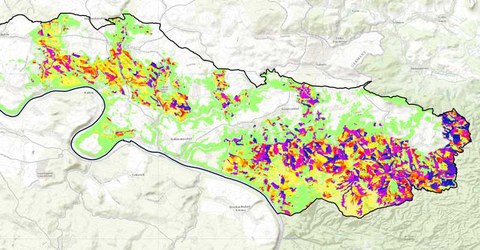
Risk areas in the Nationalpark Saxon Switzerland
- 2017 - 2020
- Funded by Deutsche Bundesstiftung Umwelt (DBU)
- Contact person: Bruno Walter Pietzsch
________________________________________________________________
PEKRIS - THE PERFORMANCE OF KRILL VS. SALPS TO WITHSTAND A WARMING SOUTHERN OCEAN
- Since 2016 - 2019
- Funded by Bundesministerium für Bildung und Forschung - BMBF
- Contact person: Dr. Jürgen Groeneveld
________________________________________________________
STATISTICAL SUPPORT FOR THE SETUP OF A COLLECTION OF MATERIAL FOR AN EVALUATION OF METHODS FOR THE DEACIDIFICATION OF BOOKS
- 2016 - 2018
- Contracting authority: Sächsische Landesbibliothek – Staats- und Universitätsbibliothek Dresden (SLUB)
- Contact person: Requests have to be directly addressed to the SLUB
________________________________________________________________
MODELS FOR GENOMIC ALTERATIONS AND THE EVOLUTION OF ANTIBIOTIC RESISTANCE IN AQUATIC ENVIRONMENTS
Gene transfer will be analysed with molecular tools in micro- and mesocosm experiments in order to inform individual-based models for process analysis and to develop strategies for reducing gene transfer by integrative sewage modeling.
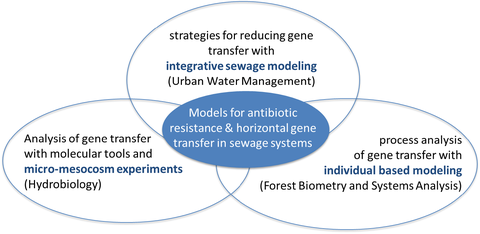
Integrative project structure
- 2014 - 2017
- Funded by 'support the best'-pool of Technische Universität Dresden
- Contact person: Martin Zwanzig
________________________________________________________________
INVESTIGATION OF SELECTED RESEARCH QUESTIONS OF INTEGRATIVE FOREST PROTECTION AGAINST THE SPRUCE BARK BEETLE (IPS TYPOGRAPHUS L. 1758) BY MEANS OF THE INDIVIDUAL-BASED MODEL "IPS 2.0"
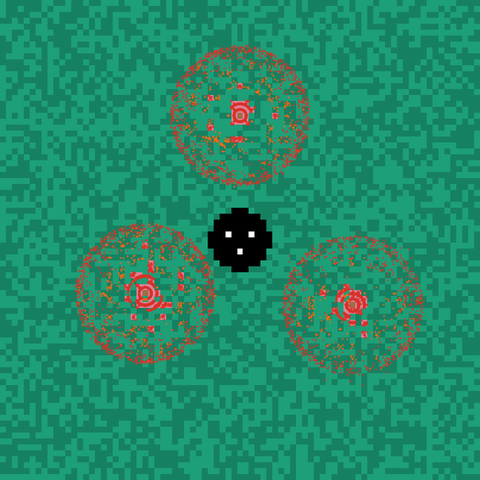
Snapshot of the IPS 2.0 model world
August - December 2016
Funding & Collaboration: Staatsbetrieb Sachsenforst, Kompetenzzentrum für Wald und Forstwirtschaft
Contact person: Bruno Pietzsch
________________________________________________________________
DEVELOPMENT OF MANAGEMENT STRATEGIES FOR THE ESTABLISHMENT OF SESSILE OAK NATURAL RECRUITMENT UNDER CONSIDERATION OF UNTERSTOREY VEGETATION
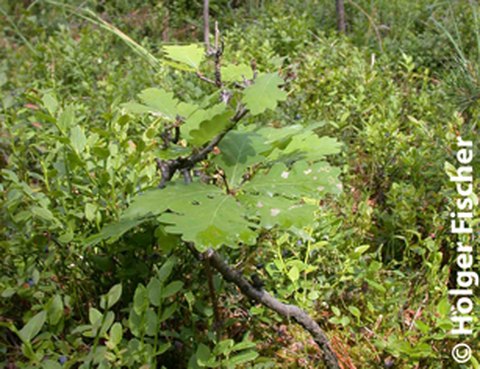
Juvenile oak tree
- 2013 - 2016
- Funded by Deutsche Bundesstiftung Umwelt (DBU)
- Contact person: Hans Hamkens
________________________________________________________________
ECOLOGICAL MODEL FOR MANAGING SMALL-SCALE SPINY LOBSTER FISHERIES
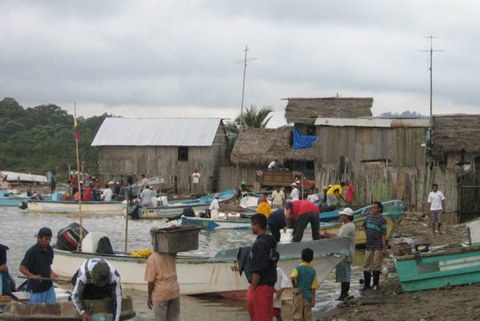
Fishing port in South America
- 2012 - 2016
- Funded by the Deutsche Akademische Austausch Dienst (DAAD)
- Contact person: Soledad Luna
________________________________________________________________
SPATIAL INVENTORY DESIGN FOR THE DETERMINATION OF THE NATURAL REGENERATION SUCCESS IN PINUS SILVESTRIS FORESTS
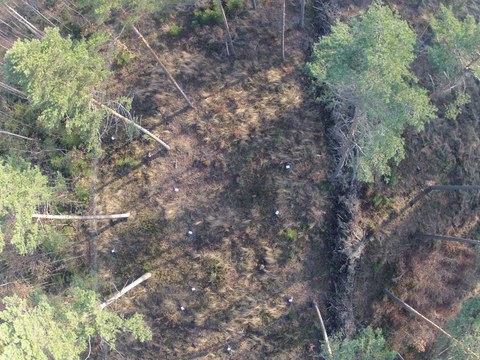
Octocopter photograph
- 2015 - 2016
- Funded by Deutsche Bundesstiftung Umwelt (DBU)
- Contact person: Dr. Juliane Vogt
________________________________________________________________
TREE MORPHOLOGICAL ADAPTATIONS AND THE CONSEQUENCES FOR ECOSYSTEM DYNAMICS
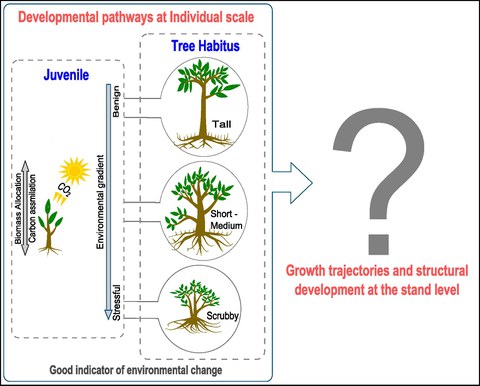
Environmentally determined pathways of individual growth
- 2013 - 2016
- Funded by the European Commission in the frame of Erasmus Mundus Joint Doctorate programme, Forest and Nature for Society (FONASO)
- Associated Partner: UMR AMAP, Montpellier (France)
- Contact person: Adewole Olagoke
________________________________________________________________
CITREE: PLANNING SOFTWARE FOR TREE SELECTION IN URBAN AREAS
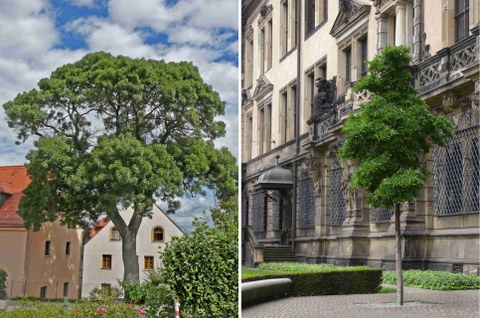
Single trees in urban environments
- 2012 - 2015
- Funded by the European Union and the Free State of Saxony
- project website | online planning software
- In the media: BBC-article
- Contact person: Dr. Juliane Vogt
________________________________________________________________
MORPHOLOGICAL ADAPTATIONS OF MANGROVE TREES TO ENVIRONMENTAL STRESS AND THEIR CONSEQUENCES FOR LOCAL PLANT INTERACTIONS AND REGENERATION PATTERNS IN DEGRADED MANGROVE ECOSYSTEMS
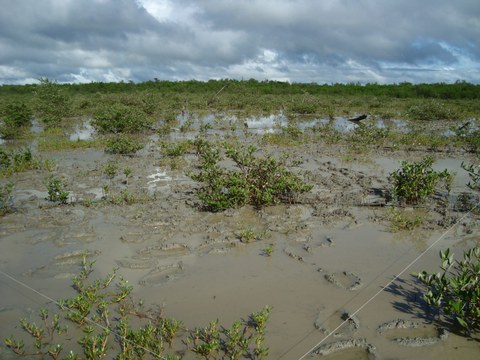
Mangrove regeneration site
- 2011 - 2014
- Funded by German Research Foundation (DFG)
- Contact person: Dr. Uwe Grüters and Dr. Juliane Vogt
________________________________________________________________
MODELLING GAP DYNAMICS, SUCCESSION, AND DISTURBANCE REGIMES OF MANGROVE FORESTS
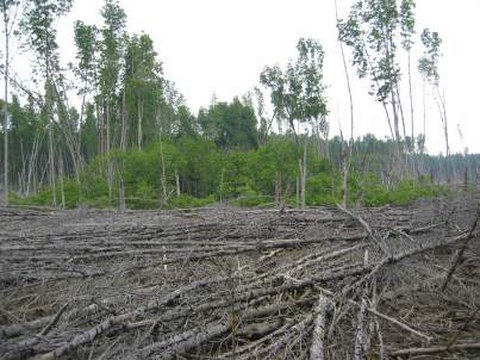
Mangrove forest gap and succession
- 2007 - 2010
- Funded by German Research Foundation (DFG)
- Contact person: Dr. Juliane Vogt

